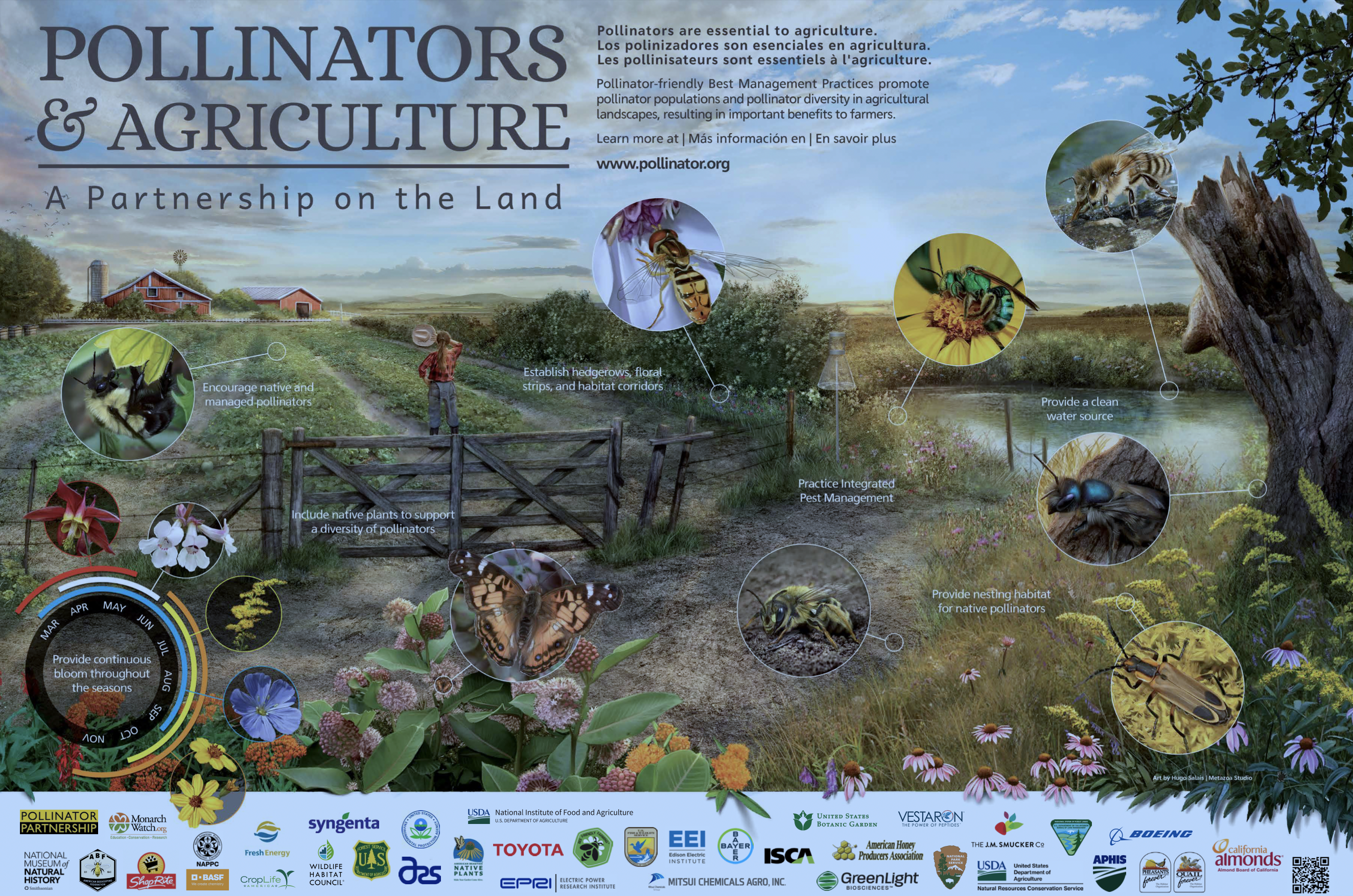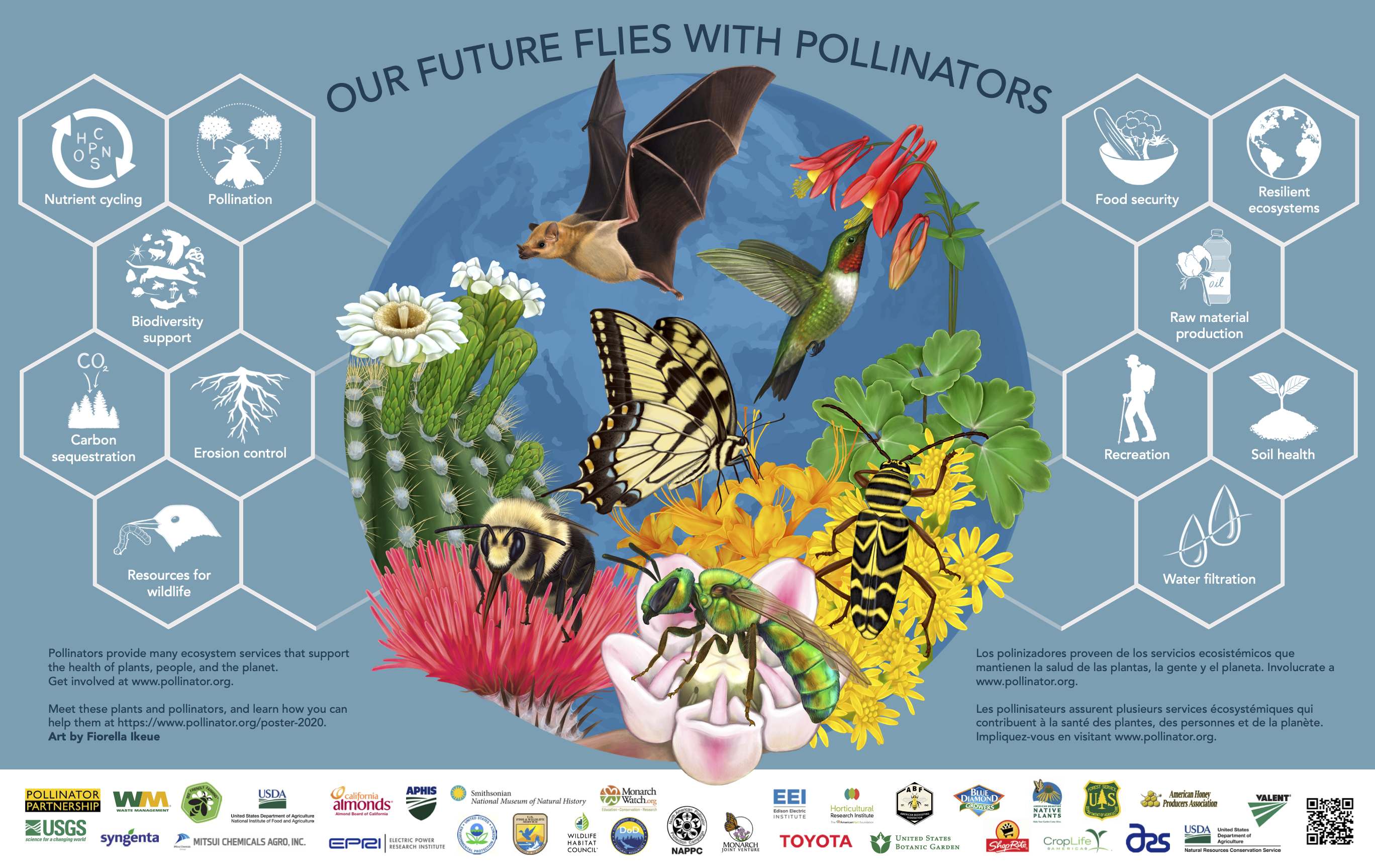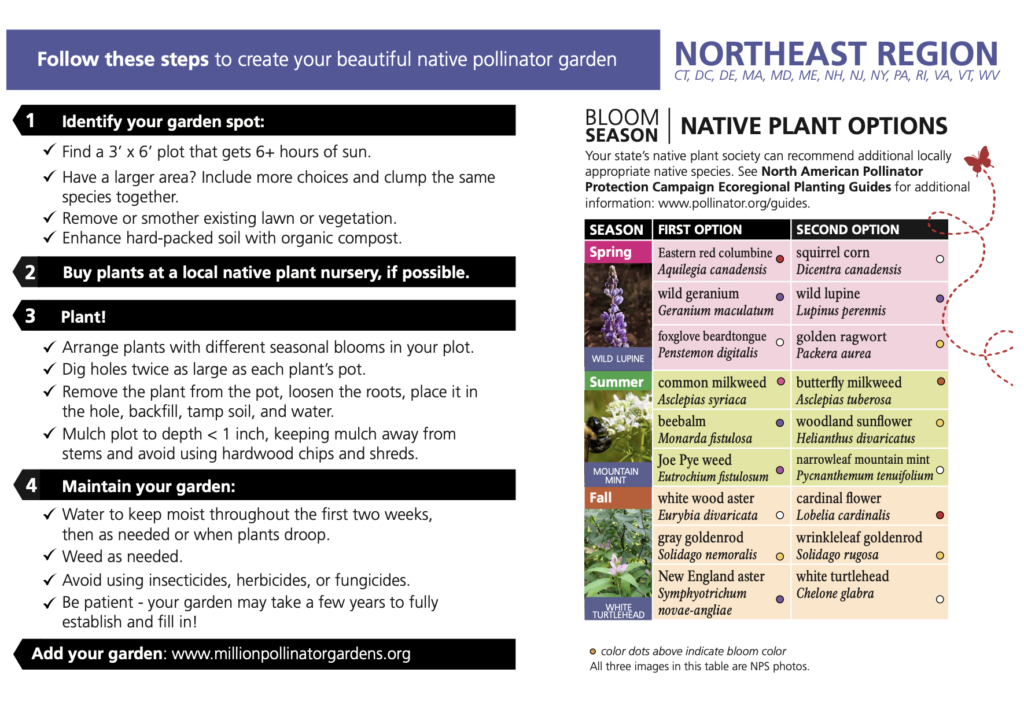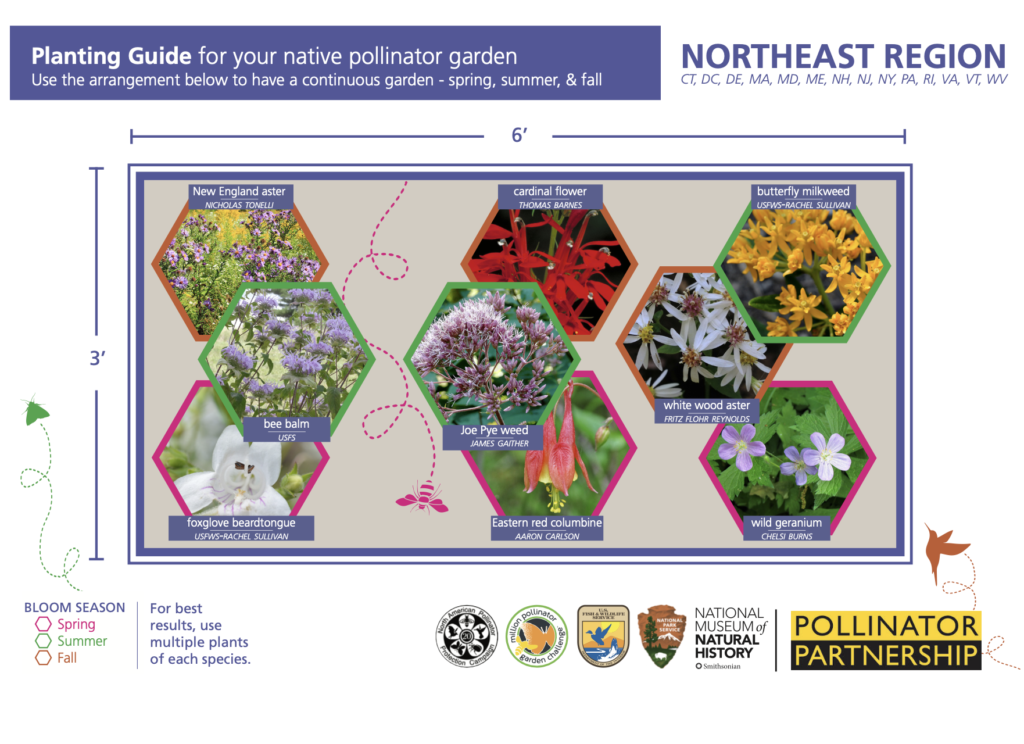Pollinator Appreciation!
As we continue to enjoy fresh summer produce and are moving quickly through the delicious-ness of seasonal produce from local farms (strawberries, cherry tomatoes, blueberries, peaches & more – oh my!) – we’d like to highlight the important work of local pollinators.
Without plant pollination by local bees, hummingbirds, butterflies, and other pollinating insects, this incredible variety of summer fruit would not be possible. In fact, ⅓ of all food production in the United States benefits from pollination! (source: North American Pollinator Protection Campaign)
To increase knowledge of and appreciation for pollinators, we want to take a moment and jump back into the diverse educational resources and the wonderful conversations we had with folks during National Pollinator Week in June (6/20-6/26/2022)!
Without the work of pollinators, food security will be compromised for communities across the globe. Not only will the absence of pollination between crops directly impact food production, but soil health will also deteriorate which puts our agricultural systems and environmental stability at risk. Furthermore, pollinators provide key resources for wildlife, prevent harmful erosion, and balance some of the most basic components of a healthy ecosystem. The Pollinator Partnership poster below shows several important roles of pollinators (on the far left), and how those roles directly benefit our earth and global communities (on the far right).
How can we support pollinators?
The poster below from Pollinator Partnership details several ways to support pollinators in our local environments such as our community gardens or outdoor space at home. One of the best places to start is to transition your green spaces into native pollinator gardens that will provide pollinators with shelter and essential food sources so they can continue supporting the local ecosystem.

For our specific region, some of tbe best native pollinator-friendly plants by growing season are Milkweed (summer), New England Aster (fall) and Foxglove (spring). The guide below provides much more detailed information.
To continue learning about pollinators and their role in our day-to-day lives, as well as additional ways to support pollinators at home, check out this Pollinator Week Resource Packet!




